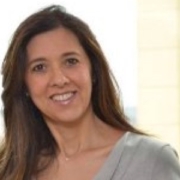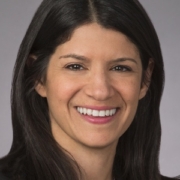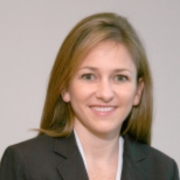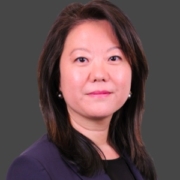Diversity in the C-Suite: Leaders Championing Change
By Jessica Titlebaum Darmoni

Image via Shutterstock
On April 25, the Executive’s Club of Chicago hosted a discussion between Craig Donohue, Executive Chairman and CEO of Options Clearing Corporation, Aylwin Lewis, Chairman, President and CEO of Potbelly Sandwiches Works and Carter Murray, Worldwide CEO of FCB. Moderated by Nichole Barnes Marshall, Global Head of Diversity & Inclusion at AON, the conversation focused on how these leaders have addressed and implemented successful diversity and inclusion initiatives within their organizations.
Leveraging Positions of Power
Carter Murray, Worldwide CEO of FCB and the Chicago Foundation of Women’s Male Champion of Change, kicked off the discussion talking about the personal and professional reasons he is committed to gender equality.
“My mom’s family had a successful family business and while my mom was always driven, she grew up being told to get married and have children,” he said.
While his mother was persuaded against working, Murray said it was ironic that it was his mother’s twin brother who ran the family business into the ground.
“Before the company went bankrupt, my mother was able to take $50,000 out and became a successful entrepreneur.”
Murray explained that he saw how hard she had to work to prove herself, compared to her male counterparts.
“This is fundamentally wrong,” he said.
Leading a global organization, Murray also has a professional perspective on the issue. He has seen employees discriminated against because of their sexual orientation as well as female industry colleagues face sexism in the office.
Murray explained that the issue should be fixed at the top level of management.
“As a white heterosexual male, we need to fix this,” he said. “It starts with leadership. You know that quote that a fish smells from its head? As leaders we need to get this right, policies should be zero tolerance and we should not just talk, but take action.”
Agreeing with Murray, Potbelly President and CEO Aylwin Lewis also believes that inclusion needs to be part of the decision maker’s strategy. He stated,
We can’t see what’s in someone’s heart. You might have good intentions but we can’t gauge that, and we judge people on their actions.”
Craig Donohue, Executive Chairman and CEO of Options Clearing Corporation (OCC), also believes that leaders need to leverage their positions of power.
Donohue joined OCC in January 2014 after an extensive career at the CME Group where he was also committed to gender and pay equality. The CME has always had a diverse group of leaders such as Kate Meyer who led the clearing house division from 1987 to 1998, or more recently Kim Taylor who is the current President of Global Operations and Technology.
It was after speaking with his daughter, a Chicago based lawyer, about the challenges she faced in her career that he focused on the glass half empty perspective rather than the glass half-full. He asked what he could do to help the cause and has determined that bringing awareness and visibility to the issue is his solution. Donohue’s take on doing his part according to him at the event,
“We have a pulpit and we should use it.”
Donohue also talked about his experience as a ‘transformation agent.’
While a small organization, the OCC has great industry output providing clearing and settlement services for all the US options exchanges and acting as the guarantor to every options trade.Among the changes Donohue has implemented was bringing a handful of women to OCC’s Board of Directors.
“OCC had an all male Board but now we have three female members,” said Donohue referring to Susan E. Lester, Christine L. Show and Alice ‘Patricia’ White.
He has also put women in senior level positions and on the Management Committee including Amy Shelly, OCC’s Chief Financial Officer, Jean Cawley, OCC’s Senior Vice President and Special Advisor to the Chairman and Tracy Raben, OCC’s Senior Vice President and Chief Human Resources Officer.
Evolving Pool of Talented Candidates
One of the things stressed during the conversation was that companies should look for candidates with diverse backgrounds.
“If you are not looking for something, you won’t find it,” said Donohue.
FCB’s Carter gave advice on what not to do when looking at hiring needs.
“I believe it is insulting to look to fill a position with a woman just because it’s a female candidate,” he said. “Instead, we should look to hire brilliant, talented people that will step up to the role.”
While there is onerous on the company to look for diversity within their candidates, it was also noted that the pool of talent is growing, especially in the financial sector.
“The financial industry used to be a man’s world but this is evolving as we are moving away from floor based trading, which was a physical business,” Donohue said. “We used to hire candidates with military backgrounds and that specialized in engineering and mathematics. Women are taking leading positions in these areas so the demographics are changing.”
Bringing It All Together
The Executives Club of Chicago put together an informational event on how organizations can be more successful in their diversity and inclusion initiatives. While a top down approach is most beneficial, it’s important to also bring advocacy and awareness to the issue. Identify benchmarks by looking at the workforce in categories related to diversity and evaluate how you stack up. Also, figure out what you are looking for because if you don’t know, you won’t find it. Finally, look to hire exceptional people, not just to fill quotas.
As the conversation was concluding, Barnes Marshall shared a saying often mentioned at Aon.
“Diversity is counting heads but inclusion is making heads count.”











